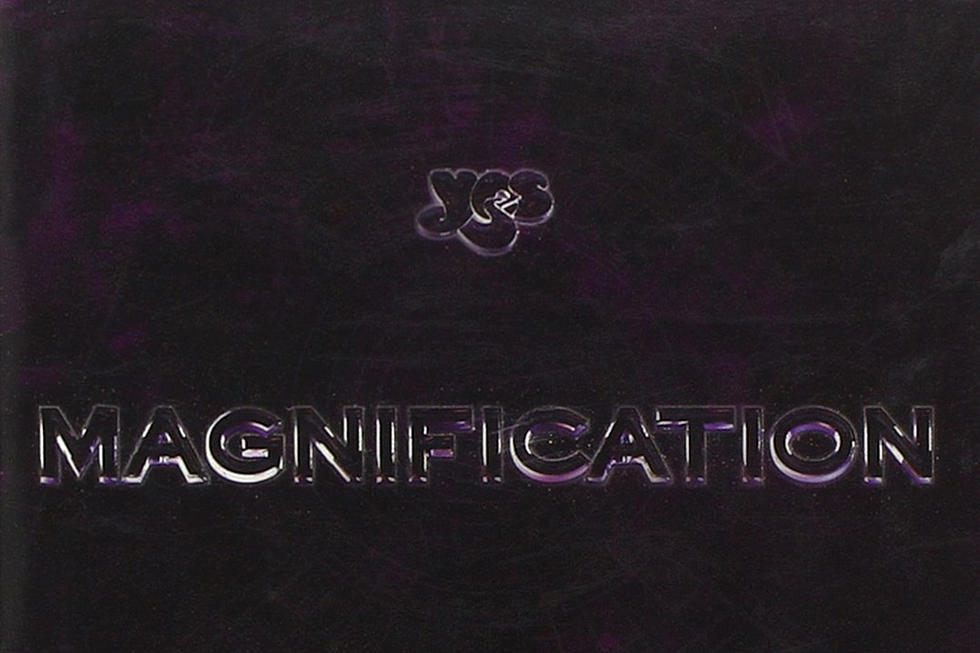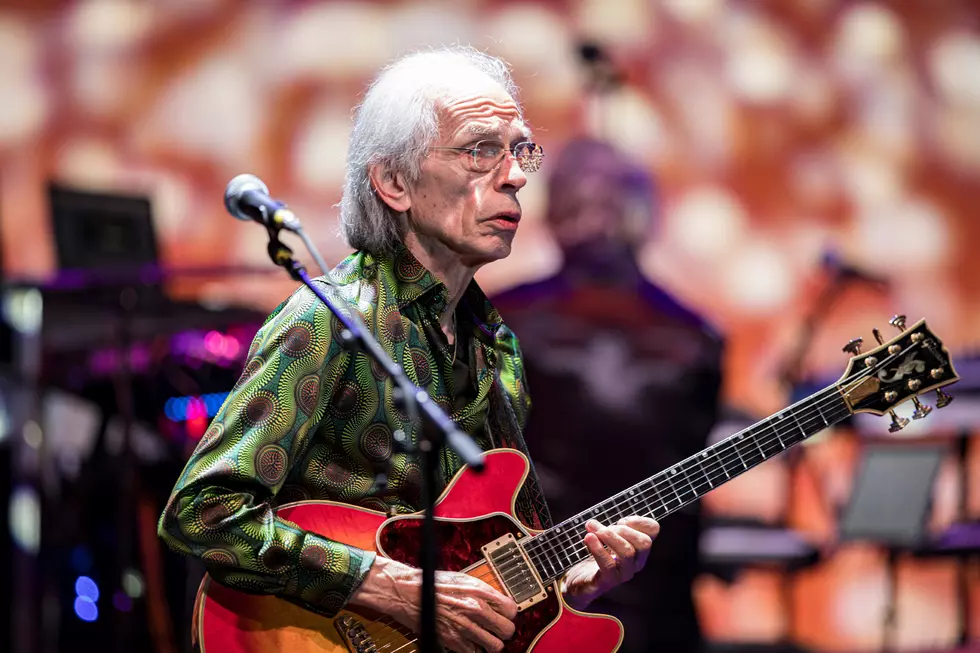
20 Years Ago: Yes’ ‘Magnification’ Marks Jon Anderson’s Swan Song
Magnification became an unintentional last Yes hoorah for their founding singer, Jon Anderson.
The pioneering prog-rock ensemble wasn't in a great place entering the 2000s. Not only had their past couple LPs — 1997’s Open Your Eyes and 1999’s The Ladder — failed to impress critics or rank highly on the U.K. and U.S. charts, they also lost two newcomers (keyboardist Igor Khoroshev and multi-instrumentalist and backing vocalist Billy Sherwood) as the millennium kicked off.
Following the conclusion of their Masterworks tour in August 2000, the remaining quartet — Anderson, bassist Chris Squire, drummer Alan White and guitarist Steve Howe — decided to compensate for their lack of a keyboardist by trying something they hadn't done since their second album, 1970’s Time and a Word: incorporate a real orchestra into the formula. The resulting record, 2001’s Magnification, was a big success - at least musically.
By and large, it found the quartet working harmoniously with composer and conductor Larry Groupe and producer Tim Weidner — mostly eschewing the pop-rock approachability that dominated their ‘80s and ‘90s run and recapturing the progressive-rock magic of their seminal ‘70s opuses. Unknown to them at the time, Magnification would also be the final studio outing for Anderson, making it an even more noteworthy entry in Yes’ sprawling catalog.
Although Sherwood left the band on his own terms, Khoroshev’s departure was less amicable: The keyboardist was reportedly accused of “sexually [assaulting] two female security guards working backstage” during their July 23, 2000, show at Virginia’s Nissan Pavilion. That behavior — coupled with his incompatibility with Yes’ future artistic plans, according to Howe — led to him being dismissed at the end of the tour. Rather than recruit a replacement, they took a page from inspirations like the Beatles, the Rolling Stones and the Moody Blues by trying out a proper orchestra on The Ladder’s follow-up. As Howe aptly rejoiced at the time, “Real is always better.”
As for how Groupe got the job, he revealed that “an associate at the San Diego Symphony” knew that Yes were looking for an arranger. Because he was already a huge fan of the group, he reached out to its management and ended up adding some instrumentation to a few new Yes demos. Impressed with his contributions, the quartet decided to hire Groupe with the understanding that he would make any requested changes along the way. Luckily, so much of what he came up with was kept that he deemed himself “a cocomposer on the record.”
The recording itself took place at Santa Barbara Sound Design between February and May 2001, with producer Tim Weidner (Seal, Mike Oldfield) appointed at Howe’s suggestion. Outside of occasional recommendations and requests from the band — particularly from Anderson — Groupe was free to embellish as he wanted. Howe was especially keen on this setup because the absence of an equally involved keyboardist allowed his songwriting to “come through a bit more” and his playing to feature “a little [more] texturing.” He added that the smaller group dynamic (comprised of only longtime members) was essential for them to “grow closer and work closer together, and be much more buoyant and flexible with [their] approach.”
Listen to Yes' 'Magnification'
Magnification signified a return to Yes’ classic style; even its title embodied Anderson’s habitually spiritual notion of “magnify[ing] everything that’s good around you in order to magnify everything that is good within” (as he explained in the Yes: Symphonic Live bonus features). One vintage element that didn’t return, however, was Roger Dean’s synonymous artwork. He claimed that he’d “done a lot of work, but the record company hadn’t shown the band what [he] had done.” Instead, Bob Cesca (who directed videos for Iron Maiden and Motley Crue) designed the imagery, with only Dean’s famous logo sticking around.
Despite generally receiving more commendations from critics than its immediate predecessors, Magnification’s sales were still disappointing: It landed at only No. 71 on the U.K. albums chart and at No. 186 on the Billboard 200, making it one of the band’s lowest-selling albums. Its subsequent expanded reissues, as well as the international Yes symphonic tour (which featured an orchestra and keyboardist Tom Brislin), helped it gain popularity and accolades. The LP's reputation has grown since its release, and for good reason: There really isn’t a bad track.
“Magnification" kicks it off with an invigorating blend of poppy melodies, whimsical instrumentation and fanciful strings. Anderson sings as well as ever, and the arrangement balances the accessibility of mid-period Yes with the intricacy of their initial records. That stunning opener segues fluidly into “Spirit of Survival,” a bombastic and frisky rocker whose lyrics are eerily prophetic, considering Magnification's U.K. release closely preceded 9/11. It, too, evokes pivotal collections like Relayer, Fragile and Tales From Topographic Oceans, as do the Squire-led “Can You Imagine,” the epic “Dreamtime,” the ethereal “In the Presence Of” and the uplifting “We Agree.”
“Don’t Go” is comparably synthetic and cheesy, yet it’s still admirably executed, whereas “Give Love Each Day” is like an unintentional nod to the Stylistics’ “People Make the World Go Round” that greatly emphasizes Groupe’s score. “Soft as a Dove” is perhaps a bit too saccharine overall, but it's redeemed by a pastoral serenity. And the record ends with “Time Is Time,” a classic Yes coda with tight harmonies, even tighter musicianship and economic pace and duration. It gives the sequence a strong sense of closure and finality, making it one of the band's best latter-day albums.
The group spent the next several years working on live releases, solo material and other projects, with Anderson’s health issues eventually leading to him being replaced by the time of 2011’s Fly From Here. The two parties have largely remained separated, so it looks like Magnification may endure as Yes’ last record with their founding singer. With its elegant orchestration, strong singing and trademark complexity, it’s hard to imagine a more fulfilling farewell.
Yes Albums Ranked
More From Ultimate Classic Rock









